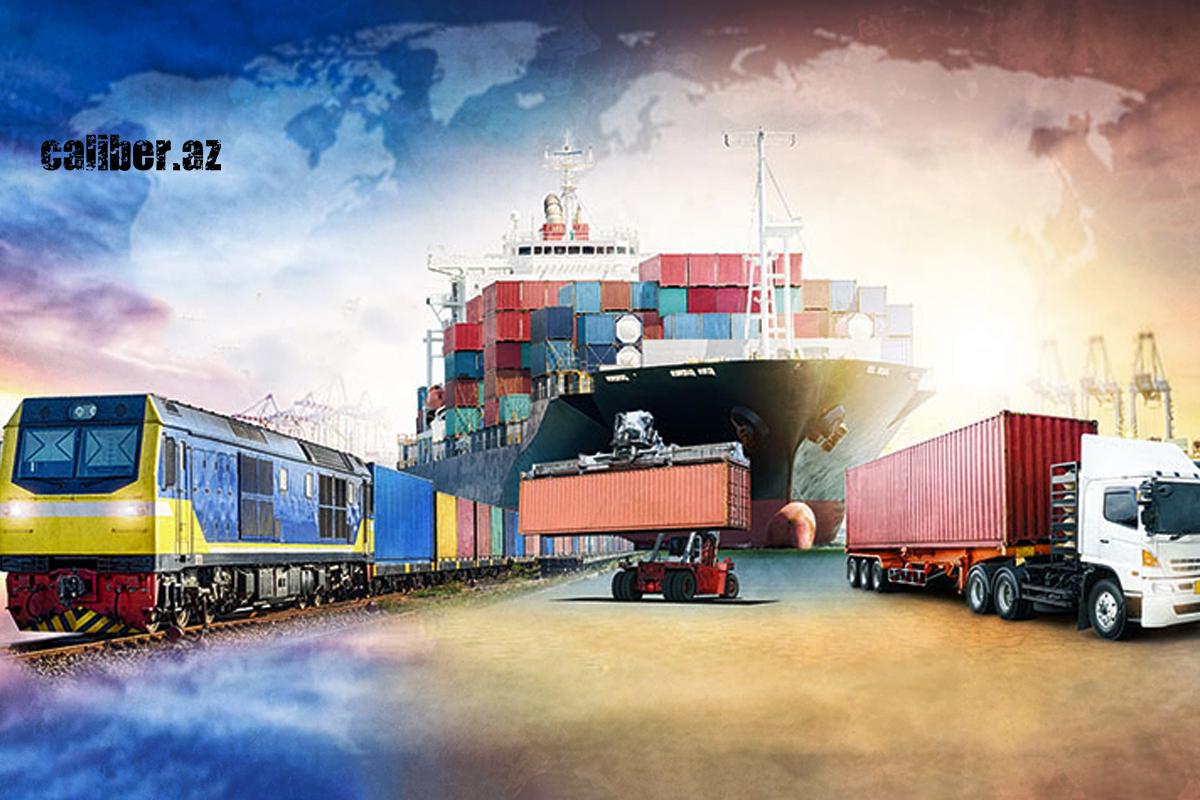Baku, Ankara, Nur-Sultan expanding Middle Corridor capabilities Analysis by Caliber.Az
Azerbaijan's strategically important geographical position at the junction of Europe and Asia has long attracted the attention of the European Union, China, Türkiye, and Central Asian countries, which support Baku's efforts to form a regional logistics hub. The war in Ukraine forced us to take an even closer look at this prospect, prompting the countries of the region to deepen transport cooperation. On the eve of the meeting in Baku, the transport and foreign ministers of Azerbaijan, Kazakhstan and Türkiye - the participating countries of the Trans-Caspian International Transport Route (TCITR) agreed to strengthen the synchronisation of cargo flows, including Chinese transit, for which it was decided to create a joint venture under the auspices of TCITR, as well as expand the possibilities of the Baku-Tbilisi-Kars corridor (BTK).
The geopolitical crisis caused by the military actions in Ukraine and the anti-Russian sanctions imposed by the United States and the EU has qualitatively reformatted the transit and logistics picture of Eurasia. At the same time, it is obvious that Azerbaijan is becoming a key beneficiary of many changes, as evidenced by the significantly increased number of applications in recent months from freight forwarders and logistics companies in Europe, Central Asian states (CA), China, putting forward initiatives to expand the potential of the Silk Road by increasing cargo traffic on transit routes passing through Azerbaijan.

The opening of the Baku-Tbilisi-Kars railway corridor in October 2017 became the technical base contributing to a multiple increase in cargo traffic between Türkiye, Azerbaijan and Kazakhstan. In the same year, Nur-Sultan, Baku, Tbilisi and Ankara agreed on the formation of a Trans-Caspian international transport route designed mainly for the transportation of non-oil, mainly multimodal container cargo. The TCITR route is now recognised as the most important component of the Europe-Caucasus-Asia transport corridor (TRACECA), and according to EU estimates, in a short time, it was able to become the basis of the logistics of the entire Middle Corridor. China began to actively develop this potential as part of its One Belt, One Road initiative, organising the movement of several block trains from a number of cities of the Celestial Empire for transhipment of container cargo to Türkiye and further to the Middle East and Europe. And recently, the Japanese global logistics company NipponExpress CoLtd (NX China) also used the new route, which launched an intermodal service for transporting goods through China, Kazakhstan and Azerbaijan to Europe, bypassing Russian territory. The so-called "dry" ports of Uzbekistan and other countries of the Central Asian region that do not have direct access to sea harbours are also showing genuine interest in the TCITR project. In turn, Turkish industrial cargoes are sent to the Central Asian region and China via the BTK railway corridor in the reverse direction along the Middle Corridor.
Since the beginning of the year, Kazakhstan has also proposed a number of initiatives aimed at expanding the logistics potential of the TCITR route. According to the Kazakh Industry and Infrastructure Development Ministry, it is planned to create a container hub on the basis of the Aktau Seaport special economic zone. International consultants and investors will be involved in this project, including such international container operators as PSA International, Maersk and MSC. The government of this country also plans to replenish the Kazakh merchant fleet in the Caspian Sea with four ferries to increase cargo traffic along the TMTM route. The implementation of these initiatives will increase the speed of container trains, multiplying the capacity of seaports and the volume of cargo transhipment by ferries. However, already in five months of this year, more than 1.2 million tons of cargo (including transit containers) have been shipped to the Aktau Commercial Sea Port, which is twice as much as in the same period of 2021. And according to the forecasts of the Aktau port, the volume of traffic on the TCITR route is planned to increase sixfold this year – up to 3.2 million tons.
Achieving these ambitious goals will require close cooperation of the main participants of the Trans-Caspian cargo transhipment - Kazakhstan, Azerbaijan and Türkiye. And the corresponding steps are envisaged during the first trilateral meeting of the foreign ministers and transport ministers of the three countries in Baku. "The heads of the sectoral ministries of the TCITR member countries coordinate the work on synchronising cargo flows, in connection with which a number of meetings have already been held in April-May of this year," TCITR Secretary-General Gaidar Abdykarimov said. According to the secretary-general, taking into account the growth of transit of Chinese goods to Europe, work is underway to expand the capacity of the TCITR transport infrastructure and attract additional investments to this. Also, a passport of the corridor has already been created, within which bottlenecks are identified and actions are being taken to eliminate them.
In order to optimiSe this work, the TCITR Association presented to the participating countries the concept of a joint venture (JV) with the functions of managing the flow of goods, as well as creating conditions for attracting additional cargo volumes to the route. "The concept of the joint venture is under consideration at the level of the relevant ministries of Azerbaijan, Georgia, Kazakhstan and Türkiye, and we look forward to the early completion of the approval process and the beginning of the formation of the joint venture, as international carriers have great interest in the TCITR route," Abdykarimov stressed.

Forcing the start of the joint venture is an extremely important issue, since taking into account the multiple increase in cargo transportation, the project participants will have to agree on a number of urgent issues. It is necessary to approve recent tariff changes for transit cargo, discuss aspects of further simplification of cross-border and customs procedures and the use of unified IT solutions, and consolidate transit cargo on the route. It is also necessary to optimise the issue of buying and renting carriage platforms, to consider new schedules for the movement of ferries, and feeder vessels between the ports of the eastern and western coasts of the Caspian Sea.
Another, no less important, issue discussed in Baku was the prospects for increasing cargo traffic along the BTK railway corridor, including by increasing capacity on narrow sections of this highway. "The Baku-Tbilisi-Kars railway has a significant potential for increasing cargo traffic. In general, the efforts made to create strong and convenient transport links within the Middle Corridor in all directions, as well as to eliminate existing problems, are an extremely important goal of regional cooperation," Azerbaijani Foreign Minister Jeyhun Bayramov said at a briefing. The foreign minister noted the importance of the declaration on trilateral cooperation in the field of transport signed in Baku, stressing that the document will play a significant role in expanding new logistics initiatives, strengthening the connectivity of the Central Asian region, the South Caucasus and Türkiye in all directions and will contribute to the expansion of cargo transportation along the TCITR route.
Bayramov also recalled that the ministerial meeting discussed the prospect of creating a working group that will prepare the next trilateral meeting in Kazakhstan and determine the date of its holding. "In addition, we discussed the new realities that emerged after the liberation of Azerbaijani territories from Armenian occupation, in particular the formation of the Zangazur transport corridor, which has a special role in establishing a new route towards the EU, Türkiye and Central Asia," the Azerbaijani foreign minister concluded.








